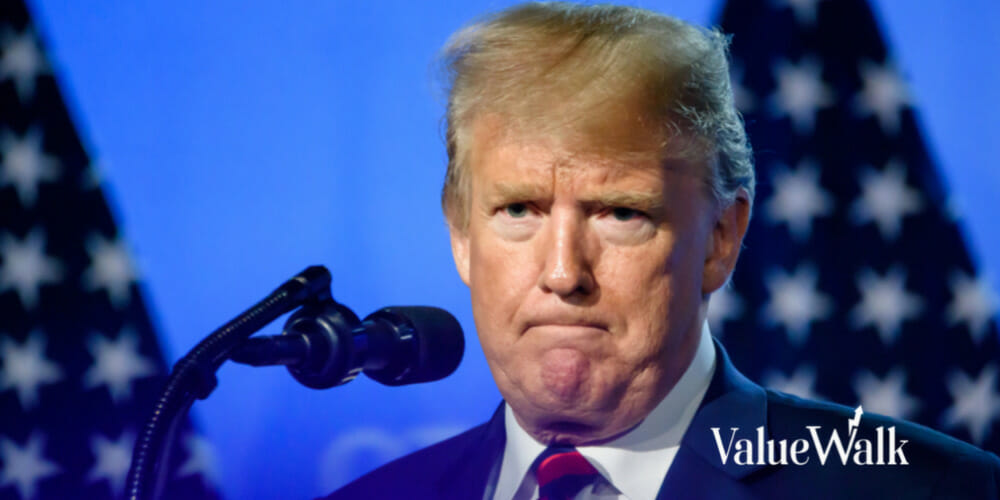Gerald Ford’s Pardon of Nixon and the Trump Indictment; A Similar Example to be Followed, or a Very Different Situation
Donald Trump’s Federal Indictment
WASHINGTON, D.C. (June 10, 2023) – An arguably parallel situation almost fifty years ago may seem relevant to issues raised by a federal indictment of former president Donald Trump, suggests public interest law professor John Banzhaf.
Fox example. it has been suggested that President Joe Biden should issue a blanket pardon to Trump, just as President Gerald Ford pardoned his predecessor Richard Nixon who was likewise facing possible federal indictments in a country which was also even then sharp divided. As the New York Times reported it:
“The new President Ford pardoned Nixon in early September. He made the move because he feared that the country couldn’t stomach a prolonged trial and the possible imprisonment of a former chief executive and head of state. He also believed that he would be unable to govern, heal the country or move forward as long as Nixon’s fate twisted in the national wind.”
Ford explained the reasons for this extraordinary and controversial decision this way, says Banzhaf, whose legal actions helped obtain the investigations of Nixon by special prosecutors which led to his downfall:
“I was absolutely convinced then as I am now that if we had had an indictment, a trial, a conviction, and anything else that transpired after this that the attention of the President, the Congress and the American people would have been diverted from the problems that we have to solve.”
Ford later explained: “Our nation is under the severest of challenges now to employ its full energies and efforts in the pursuit of a sound and growing economy at home and a stable and peaceful world around us. We would needlessly be diverted from meeting those challenges if we as a people were to remain sharply divided over whether to indict, bring to trial, and punish a former President.”
But, suggests Banzhaf, there appear to be significant differences between the two situations, even though our country is again sharply divided; perhaps even more so than during Nixon’s time.
After Nixon was pardoned, he left politics and essentially disappeared for a time from public life. Most agree that Trump would likely do the opposite, perhaps claiming the pardon as a victory and also as a vindication.
Pardoning Trump
When Nixon was pardoned, there was no concern that he would again run for president. But Trump has already begun running for president again, and a pardon is more likely to encourage rather than discourage this effort.
Geraldo Rivera has suggested that Trump should be pardoned, but only on the condition that he agree to discontinue his presidential campaign.
This is somewhat reminiscent of the decision Spiro Agnew made; in order to obtain a very favorable plea bargain and avoid any time behind bars, he had to agree to discontinue serving as vice president.
But a pledge by Trump not to run for president might be very difficult to enforce, and would only add to concerns that the federal prosecution was part of a scheme to prevent Trump from becoming president again, argues Banzhaf, who had sought a special prosecutor to prevent the Nixon-Agnew deal, and who later helped sue Agnew to force him to return the money he had unlawfully taken in bribes; a condition which was not part of the plea agreement.
Another important difference is that a presidential pardon was able to put an end to all of Nixon’s legal woes.
But while Biden can of course pardon Donald Trump for all federal crimes has may have committed – both crimes regarding government documents for which he has already been indicted, and crimes related to the January 6th riot – his pardons would not reach any crimes Trump may have committed in New York (for which he has already been indicted), nor any crimes for which he is expected to be indicted shortly committed in Georgia, notes Banzhaf, whose formal complaint triggered the criminal investigation of Trump in Georgia.
Also, almost lost in this ongoing controversy is the very real possibility that at least one juror in a criminal trial will exercise his constitutional right of juror nullification, and refuse to vote “guilty” – despite overwhelming evidence and damning legal instructions from a judge – if he is a Trump supporter, or even if he just feels that it is unfair to prosecute Trump over confidential documents while Biden is also not being charged.












